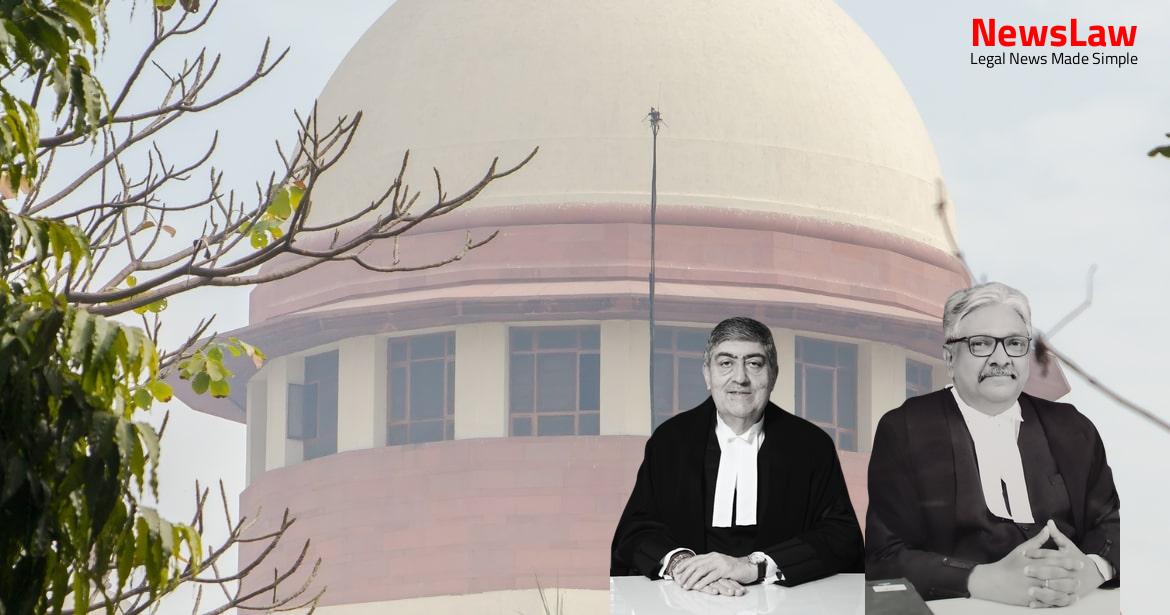The ongoing legal dispute between RC Patel Institute of Pharmaceutical Education and Research College and the relevant authorities, AICTE and PCI, has raised issues regarding the intake capacity of the college. The High Court recently dismissed the society’s writ petition, impacting the maximum intake permitted for undergraduate courses. Stay updated on this complex case involving AICTE, PCI, and the High Court.
Facts
- The Society established the RC Patel Institute of Pharmaceutical Education and Research College in 1992 after obtaining necessary permissions.
- The AICTE for the first time in 2018-19 reduced the intake capacity of the college.
- The AICTE and PCI had a conflict regarding the regulation of pharmaceutical education.
- AICTE published the AICTE (Grant of Approvals for Technical Institutions) Regulations in 2010 which allowed for an increased intake of 180 students in the regular shift and 60 in the evening shift.
- The Director of Technical Education reduced the regular intake from 180 to 100 in 2013 but left the intake for the evening shift unchanged.
- Despite approvals from relevant authorities, the Director of Technical Education continued to reduce the intake capacity of the college in the subsequent years, leading to multiple legal challenges.
- The High Court stayed the Director’s order in 2016 and 2017 to maintain the status quo of the intake capacity.
- In 2018, the AICTE approved a total intake of 240 students for the college, including 180 students in the morning shift and 60 students in the evening shift.
- The Society, aggrieved by the reduction in intake capacity, approached the High Court in 2019 through a writ petition (WP 7222/2019).
- The High Court in its judgment dismissed the society’s writ petition (WP 7222/2019).
- The maximum intake permitted at the undergraduate level was 100 students with no admission allowed in the second shift.
- The guidelines and handbook for the year 2019-20 (Appendix 3) clearly outlined this position.
- AICTE’s policy and regulations were deemed unquestionable by the High Court.
- Historically, PCI would limit the institution’s capacity despite AICTE approving a larger student intake.
- The High Court decided that the society cannot admit students beyond the permissible limit set by regulations.
- An interim order by the Aurangabad Bench of the Bombay High Court maintained the seat status quo at 180.
- Subsequent AICTE approval for a total intake of 240 students was reduced to 160 by the Director of Technical Education, but this reduction was stayed by the Aurangabad Bench of the Bombay High Court.
- The petitioner’s main concerns were the lack of AICTE approval for the second shift and the restriction of undergraduate course capacity to 100 students.
Also Read: Legal Analysis of Property Occupation in Insolvency Resolution
Arguments
- PCI informed all concerned that approval for admissions above sanctioned intake capacity would not be given.
- Pharmacy courses in second shift not considered for approval under Section 12 of the Pharmacy Act, 1948.
- Argument that regulations and policies cannot reduce the intake capacity of existing colleges without specific statutory provision.
- Violation of fair opportunity by AICTE in reducing intake.
- Ill effects on colleges facing financial crisis and disruption due to reduced capacity.
- Counsel’s reliance on regulations to argue for continuing existing intake capacity.
- Claim that reduction in capacity must be justified by compelling necessity.
- PCI issued notice in 2010 to stop second shift admissions and limit maximum intake to 100.
- Chapter VI of Approval Process Handbook 2019-2020 stipulates maximum intake as per specified appendix.
Also Read: Legal Analysis on Physical Ability in Rape Case
Analysis
- The AICTE and PCI have conflicting regulations regarding pharmacy education leading to confusion.
- AICTE decided to reduce intake for Pharmacy courses.
- Students who graduated from colleges where intake capacity was exceeded need to be protected.
- PCI and AICTE will jointly inspect institutions for maintaining education standards.
- PCI to give registration benefits to students who graduated from undergraduate courses in Pharmacy.
- PCI and AICTE to work together to end dual regulation in pharmacy education.
- PCI to reduce the number of inspections conducted.
- The Pharmacy Council of India filed a number of proceedings against State of Maharashtra Higher Technical Education and Government Department.
- These proceedings are currently pending before another Bench.
- The Pharmacy Council of India is represented by its Registrar cum Secretary in these proceedings.
Also Read: Legal Analysis on Admissions and Document Consideration in Insolvency Case
Decision
- Students falling within the 100 seat intake capacity for the academic year 2019-20 will receive recognition and registration.
- Students admitted beyond the capacity and in the second shift for the same academic year will not receive the benefits.
- All questions of law remain open for arguments and decision in other pending proceedings.
- The PCI is directed to recognize students admitted during past proceedings up to a total intake capacity of 240, as per interim orders.
Case Title: SHIRPUR EDUCATION SOCIETY THROUGH ITS PRINCIPAL Vs. THE STATE OF MAHARASHTRA (2020 INSC 115)
Case Number: C.A. No.-000892-000892 / 2020



